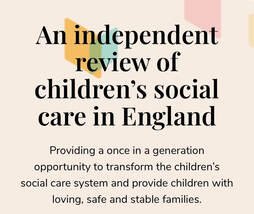|
Douglas Silas,
Specialist SEN Solicitor 21st June 2021
Your first reaction is always emotional…
Your first reaction to anything is always an emotional response - it is just human nature, we cannot hide our true initial feelings about anything when we are caught off-guard and not expecting something to happen. We need to realise that this is the same for every one. Some people's initial reactions to things (even just after a few milliseconds), especially when they are upset or angry, is often to try to be a bit 'passive/aggressive' and therefore try to look as though they are fine with things that have happened or been said. However, even though their response might at first seem alright to you or others, their body language, or the deeper and true meaning behind their words, usually gives them away; if you look close enough and pay proper attention to things. If you are really good, you will then be able to see their true and immediate reaction, even if it is very fleeting (called a 'micro-expression'), before they try to cover-up how they truly feel, using the words that they say. And remember, on some rare occasions, you come across people who may be 'passive/passive', but more often you will come across people who seem 'aggressive/aggressive'! But the real reason for me wanting to tell you all of this, is to try and highlight for you that it is our own reactions to things immediately that are also our emotional ones. We can try as best we can to hide them from others, but we should note how we immediately respond to things. We then might find ourselves blaming somebody else for something, only to realise a few seconds later that it was actually our fault, or we may find ourselves criticising somebody or something else, when really we should be the one being criticised, or what we are criticising is just plain wrong! Interesting isn't it? It is fascinating how much insight we can have about others, but how we often don't develop that same level of insight into ourselves and our own reactions to things. So go on, try and catch your own true first reaction to something emotionally - you may be surprised at what you find!
In this week's SEN Update, you will find sections entitled:
I know how busy everyone always is, so please feel free just to read the sections that are of interest to you or read everything; the choice is always yours.
Don’t forget, to ensure that you never miss one, you can get my SEN Updates personally by completing your email details above,
or by following me on one of the social media platforms I use (i.e. Twitter/Facebook). You can also share this SEN Update with others (please only do so if it may be relevant to them) by using one of the icons, usually to the right or at the bottom of this page.
SEND REVIEW
Ofsted and the CQC (Care Quality Commission) jointly launched a report this week entitled: 'SEND: old issues, new issues, next steps'. It looks at a number of issues, including whether children and young people with SEND and their families have been helped by the changes to the SEND framework brought in by the Children and Families Act 2014. The 'executive summary' states" "Children and young people with special educational needs and/or disabilities (SEND), their families and those who work with them have faced significant challenges during the pandemic. The extent to which education, health and care providers in different local areas rose to these challenges to meet children and young people’s needs led to hugely varied experiences. Yet, few of the negative experiences that many children and young people with SEND and their families had during this time are new. There are long-standing issues in the SEND system. The pandemic has highlighted and intensified these issues. It has also deepened the effects that they have on children and young people with SEND. In 2009, in the final report of his inquiry, Brian Lamb called for a ‘radical overhaul’ of the SEND system. The report called for greater ambition for children and young people with SEND. It cited a culture of low expectations and a system that too often failed to deliver what children and their families really needed. The Children and Families Act 2014[ and the subsequent ‘SEND code of practice: 0 to 25 years’, also published in 2014, set out some key principles. A very important one was that children, young people and their families should play a much more central part in making decisions about the way in which needs could best be met. This is known as ‘co-production’. Alongside this, there was a strong emphasis on education, health and social care services working closely together to meet children and young people’s needs, rather than as separate entities. It was intended that children’s needs would be identified earlier and that support would continue until the age of 25 where necessary. Ofsted’s area SEND inspection evidence suggests that many local areas have struggled to implement these reforms successfully. From their introduction in 2016 through to March 2020, we routinely found local areas that were not properly implementing the requirements laid out in the code of practice and related legislation. Common weaknesses included:
Many local areas were not clear about who is – or should be – held accountable for services and provision. Problems with the identification and assessment of children and young people’s needs also continued to be prevalent. Successive area SEND inspection reports have commented on a continuing lack of ambition for pupils with SEND. Attendance at school for this group remained below national averages and exclusions were often high. There seemed to be greater opportunities for further education, supported employment, and training for young people with SEND in many areas. However, only a tiny minority ended up in sustained employment. Over time, the number of children and young people identified as having SEND has grown, in all types of settings. Most are educated in mainstream settings, although numbers in state-funded special schools are increasing each year. How well children’s needs are identified varies from one local area to the next, and one setting to another. Sometimes, needs are missed or are not identified accurately. For example, speech, language and communication needs may be identified as moderate learning difficulties. Underachievement, sometimes due to a poorly designed or taught curriculum, is sometimes wrongly labelled as ‘SEND’. Pupils who are not taught to read well in the early stages of their primary education are particularly susceptible to being wrongly identified as having SEND because they cannot access the curriculum. As numbers of pupils with SEND have increased, various stakeholders have questioned the sustainability and sufficiency of funding. Given this context, we know that many children and young people with SEND and their families were already experiencing flaws in the services that they were receiving before the first national lockdown began in March 2020. There were also many existing concerns about their outcomes. The effects of the pandemic and the related lockdowns served to exacerbate these issues enormously. Through our research visits to local areas, schools, early years settings, children’s services providers and further education and skills providers in the autumn term 2020, we found that children and young people with SEND were often not receiving education. Some important healthcare, such as physiotherapy, had also ceased. This left children and young people immobile and sometimes in pain. A lack of speech and language therapy, or communication devices not being available, left them unable to communicate properly. Social care and health-funded respite provision for families had also not been available. Parents and carers told us of their frustration and exhaustion, and sometimes of their despair. A few had found that the relative calm of being at home through the first lockdown had been beneficial for their children. However, this was more unusual. Many children and young people, including those with complex needs, did not attend school or college during the first national lockdown. Some did not have a place in school because they did not have an EHC plan. Some did have a place, but did not attend because their parents were too anxious to send them in. Others could not attend because schools said that their health or personal care needs could not be met. Some received remote education and coped well with this; others did not. When schools and colleges opened fully to all pupils in September 2020, not all those with SENDreturned. Those who did return were sometimes given a narrower curriculum than usual. By the time of the third national lockdown in spring 2021, we heard even greater concerns from parents and carers in the 4 local areas we visited than we had in 2020. For many, life had become more difficult over time. Children and young people, particularly those who had moved to a new school or college in September 2020, were feeling isolated and lonely. The issues that were raised in the autumn term visits to local areas – a lack of health and care provision, inconsistent provision from schools, long waiting times for assessments – continued. Many parents expressed concerns about the now-evident impact of these issues on their children and on their own physical and mental health. Throughout the pandemic, local areas have had to adapt their ways of working frequently and significantly to continue to provide services for children and young people with SEND. The success with which they adapted appeared to be closely related to the quality of their work with families before the pandemic. It also depended on the extent to which they had implemented the 2014 reforms in a way that created the right relationships, systems and structures. Some areas quickly managed to adapt; others struggled. Nevertheless, families clearly appreciated the support and care given to them by individual professionals. Even where systems seemed to be overwhelmed by the challenges of the pandemic, families praised some individuals from education, health, social care or wider children’s services for the great efforts they had put into supporting them. However, although there were areas where professionals managed to adapt well and where different parts of the system worked together effectively, it is evident that children and young people with SEND are now even more vulnerable than they were before. Missing out on education – in some cases, missing vast amounts – means that these children and young people will be further behind their peers. Missed support for physical health, communication needs and mental health has had a seriously detrimental, and in some cases potentially permanent, impact. Some children and young people with SEND have been out of sight of safeguarding professionals. Preparation for adulthood, including for education, employment and training, has been adversely affected. Delays in identifying needs have meant that some children and young people’s needs may not have been properly assessed or even noticed. As recovery from the pandemic begins, we cannot underestimate the importance of good-quality universal services for children and young people with SEND across education, health and wider children’s services, alongside more specialist health or social care support where needed. The availability and effectiveness of these universal services can prevent a child or young person from needing something additional or different. A child or young person should never be labelled as having SEND because of a poor-quality curriculum or ineffective teaching, or weaknesses in universal health or care services. This was something that we saw too frequently in 2010 and, worryingly, something we still too often find. Further reform to the SEND system has become even more urgent than it was before the pandemic." You can read the full report here. (Or you can watch the accompanying video here).
SOCIAL CARE REVIEW
There was also another report issued this week entitled: 'Case for Change' which was issued by 'The Independent Review of Children’s Social Care in England', whose tagline says it is: 'a once in a generation opportunity to transform the children’s social care system and provide children with loving, safe and stable families.' The best summary that I found was on the National Children's Bureau's website, on a page entitled: 'Children’s social care review makes for ‘depressing reading’, which stated: "Too many previous reviews, reports and researchers have made the same points. We know what’s wrong with the system, what we need is the political will and urgency to change it. The ‘Case for Change’ makes for depressing reading. It is unacceptable that so many children and families are being let down and denied the support that could allow them to enjoy healthy and stable lives. Too many previous reviews, reports and research have made the same points. We know what’s wrong with the system, what we need is the political will and urgency to change it and invest in children’s futures. The Independent Review has again underlined how children’s social care is increasingly focused on investigating serious cases and putting children into care, rather than supporting struggling families to prevent harm from happening in the first place. This isn’t simply the result of a more risk-averse system. It is inescapably linked to the devastating erosion of central Government funding for children’s services over the past decade. There is also an important acknowledgement that children from poorer backgrounds, disabled children, and those from black and ethnic minority communities are often hardest hit by the cuts in early intervention. NCB fully supports the Review’s call for a more effective and compassionate response to families facing conditions of adversity. We cannot avoid tackling thorny issues like poverty and discrimination if we are going to reduce the number of children coming into care, and avoid the spiralling costs of child protection. A co-ordinated strategy from across Government is urgently needed that looks at children’s lives in the round, and brings together work in social care, education, health and SEND. But first we need proper investment in early help and early intervention at this year’s Spending Review. The Review’s analysis is comprehensive, strong and thoughtful – we hope the recommendations will be equally so and acted on swiftly." You can read the full report here.
LATEST NEWS ONLINE
Not much in the news I'm afraid this week, but here are a few articles that I found of interest: Parents of children with special needs tell Ofsted of Covid despair Care services too focused on investigating families in crisis, says review The ‘catch-up plan’ for schools needs to start with the Department for Education
Again, aside from clicking on the relevant links for more information, I would also remind you of the very useful resources and information provided on the following websites:
- IPSEA - Council for Disabled Children - Contact - Scope - Special Needs Jungle I would also highlight again the fact that you can now get a digital copy of the magazine: Autism Eye which is very helpful to any parents or professionals involved with children/young people with Autism. Keep safe until next week. With best wishes Douglas
P.S. I understand that there are many educational items, news articles, or other useful resources on the web, so I would be very grateful if you could let me know of any that you find that you think that others may find useful, so that I can direct people to them.
How useful do you find my SEN Updates?
Created with Quiz Maker
Comments are closed.
|
Archive
March 2022
|
© Douglas Silas Solicitors 2005-24
Authorised and Regulated by the Solicitors Regulation Authority (SRA no: 643718)
‘Douglas Silas Solicitors’ is the trading name of ‘Douglas Silas Solicitors Limited’, a limited company registered in England & Wales (company no: 10689991), whose registered office is Gable House, 239 Regents Park Road, Finchley, London, United Kingdom, N3 3LF. A list of members/directors may be inspected at our office.
Authorised and Regulated by the Solicitors Regulation Authority (SRA no: 643718)
‘Douglas Silas Solicitors’ is the trading name of ‘Douglas Silas Solicitors Limited’, a limited company registered in England & Wales (company no: 10689991), whose registered office is Gable House, 239 Regents Park Road, Finchley, London, United Kingdom, N3 3LF. A list of members/directors may be inspected at our office.






 RSS Feed
RSS Feed







